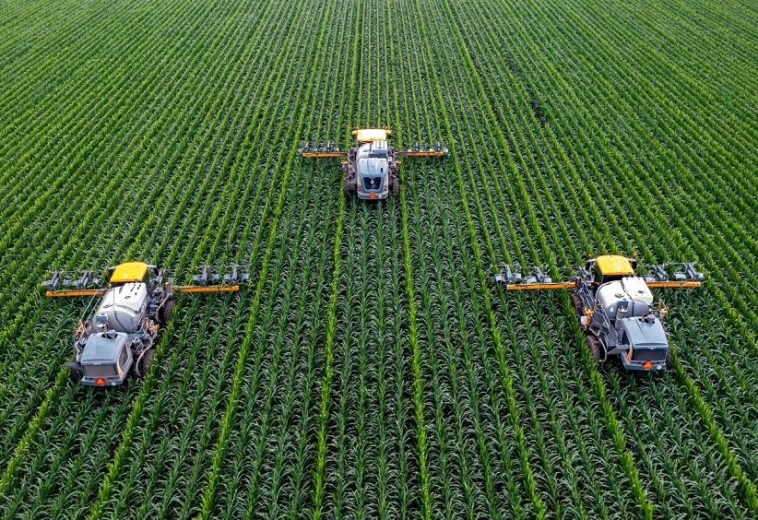“Food is not just what we eat; it is a source of life.” This profound statement embodies the spirit of World Food Day, celebrated annually on October 16 to raise awareness about global hunger and advocate for food security. Established by the Food and Agriculture Organization (FAO) of the United Nations in 1979, this day underscores the need for sustainable food systems and highlights the importance of ensuring that everyone has access to sufficient, safe, and nutritious food.
The theme for World Food Day 2024, “Right to Food for a Better Life and a Better Future,” emphasises the fundamental right of every individual to access nutritious food. This theme is particularly relevant to Africa, where food security remains a significant challenge. According to the FAO, approximately 690 million people globally were undernourished in 2019, a number that has likely increased due to the COVID-19 pandemic, conflicts, and climate change.
In Africa, the situation is critical. The FAO reports that an estimated 283 million people faced chronic hunger in 2022, underscoring the urgent need for comprehensive strategies to combat food insecurity and malnutrition. With the population projected to reach 1.7 billion by 2030, ensuring a sustainable and diverse food supply is more crucial than ever.
The Right to Food and Sustainable Development
The right to food is enshrined in international law, including the Universal Declaration of Human Rights and the International Covenant on Economic, Social, and Cultural Rights. However, millions across Africa continue to suffer from hunger and malnutrition, exacerbated by poverty, inequality, and unsustainable agricultural practices.
During the 79th session of the United Nations General Assembly, the theme “Leaving No One Behind” highlighted the importance of collective action to address global challenges, including food insecurity. By promoting inclusive policies and advancing the Sustainable Development Goals (SDGs), African nations can work towards a future where everyone enjoys the right to food, contributing to healthier and more resilient communities.
Food Diversity and Nutrition
Food diversity is essential for proper nutrition and health. A varied diet helps prevent malnutrition and the rise of chronic diseases, which are increasingly common in African countries. The FAO stresses the importance of consuming diverse foods—particularly fruits, vegetables, legumes, and whole grains—for overall well-being.
Yet, in sub-Saharan Africa, over 50% of dietary energy comes from just three staple foods: maize, rice, and cassava. This lack of dietary diversity affects nutritional outcomes and increases food insecurity, particularly in the face of climate change. The Global Nutrition Report reveals that nearly 2 billion people worldwide are overweight or obese, while 1 in 10 are still hungry. This paradox illustrates the need for policies promoting diverse, nutritious, and affordable food.
Food Affordability
Affordability remains a significant issue, especially in low-income regions of Africa. The FAO estimates that around 3 billion people worldwide cannot afford a healthy diet. Economic inequality, rising food prices, and poor infrastructure further exacerbate this crisis.
In Africa, food prices have surged due to factors such as the COVID-19 pandemic, ongoing conflicts, and climate-related disruptions. The African Development Bank (AfDB) reports that food prices on the continent have risen by an average of 10% annually, pushing more families into food insecurity.
To address this, governments and organisations must prioritise investments in agriculture and food systems that boost local production, improve market access, and reduce food waste. Promoting sustainable agricultural practices is key to enhancing food availability and affordability, particularly for vulnerable communities.
The Role of Technology
Technology plays a vital role in promoting food security and sustainable food systems. Advances in agricultural technologies, such as precision farming and climate-resilient crops, can increase productivity and resilience. Digital tools, including mobile apps, enable farmers to access markets, information, and resources more efficiently.
The FAO highlights the transformative potential of technology in food systems, stating, “Innovation and technology can help us meet the challenges of food security, nutrition, and sustainable development.” By harnessing technology, Africa can create more efficient food systems that ensure the right to food for all.
READ ALSO: International Day of Rural Women: Celebrating Africa’s Agricultural Backbone
As we observe World Food Day 2024, it is imperative to reaffirm our commitment to ensuring the right to food for everyone. Governments, organisations, and communities across Africa must unite to develop inclusive policies that promote food diversity, accessibility, and sustainability.
Equitable food systems should prioritise the needs of the most vulnerable populations, particularly women and children. By investing in sustainable agricultural practices, supporting local food systems, and raising awareness about nutrition, we can pave the way for a healthier and more resilient Africa.
The theme of World Food Day 2024 serves as a powerful reminder of our collective responsibility to ensure that no one is left behind. Let us work together to recognise and uphold the right to food for all, fostering a brighter and more sustainable future in Africa.




